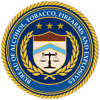
Firearms Owners Against Crime
Institute for Legal, Legislative and Educational Action

Institute for Legal, Legislative and Educational Action
Council of Foreign Relations (CFR) says YOU (and us) are responsible for all of the ills in Central and South America. You should be ashamed. Please be certain to read this article on an empty stomach. We're not responsible for you retching all over your laptop.
http://jpfo.org/articles-assd03/push-for-exec-gun-control.htm
 Following in the well-worn footsteps of New York Mayor Michael Bloomberg and his Blueprint for Federal Action on Illegal Guns , this week the Council on Foreign Relations released a memo urging the Obama administration to disregard the will of the American people and Congress and unilaterally enact a series of gun controls. Entitled, A Strategy to Reduce Gun Trafficking and Violence in the Americas , and written by CFR Senior Fellow for Latin American Studies, Julia F. Sweig, the memo pins the ills of Central and South America on U.S. gun owners and urges the president to curb our rights to cure them.
Following in the well-worn footsteps of New York Mayor Michael Bloomberg and his Blueprint for Federal Action on Illegal Guns , this week the Council on Foreign Relations released a memo urging the Obama administration to disregard the will of the American people and Congress and unilaterally enact a series of gun controls. Entitled, A Strategy to Reduce Gun Trafficking and Violence in the Americas , and written by CFR Senior Fellow for Latin American Studies, Julia F. Sweig, the memo pins the ills of Central and South America on U.S. gun owners and urges the president to curb our rights to cure them.
Leading off CFR's wish list is a call to expand the current semi-auto rifle reporting scheme nationwide. Since 2010, the Bureau of Alcohol, Tobacco, Firearms and Explosives has required that all firearms dealers in the Southwest border states report to it the sale to one purchaser within a five-day period of two or more semiautomatic center-fire rifles of a caliber greater than .22. The result of this program is the registration of gun owners who choose to purchase more than one firearm at a time and significant additional paperwork burdens for dealers.
 In the Gun Control Act of 1968 , Congress specifically limited a reporting scheme of this type to the sale of handguns. However, BATFE enacted the current requirement by twisting a procedure originally intended by Congress to allow the agency to query dealer records for legitimate and limited criminal investigations; the demand letter. Attempts by NRA to bind BATFE to their congressionally authorized functions through litigation on this issue have been unsuccessful, and to further expand the program would even more egregiously divorce BATFE's abuse of the demand letter process from any notion of Congressional authority.
In the Gun Control Act of 1968 , Congress specifically limited a reporting scheme of this type to the sale of handguns. However, BATFE enacted the current requirement by twisting a procedure originally intended by Congress to allow the agency to query dealer records for legitimate and limited criminal investigations; the demand letter. Attempts by NRA to bind BATFE to their congressionally authorized functions through litigation on this issue have been unsuccessful, and to further expand the program would even more egregiously divorce BATFE's abuse of the demand letter process from any notion of Congressional authority.
In justifying the expansion, Sweig claims that an unintentional side-effect of the current tracking program is that firearms traffickers are moving their purchases from the Southwest border states to avoid detection, "prompting the need for improved oversight of all suspicious semiautomatic firearm sales." Wildly overbroad, under CFR's plan, the purchase of a matching pair of Remington 7400 rifles in Maine for a father-son hunting trip would be considered "suspicious" and reportable.
Additionally, the CFR memo urges a new round of bans on the importation of popular firearms using the frequently abused "sporting purposes" test, which tasks the Attorney General with determining whether a firearm is "suitable for or readily adaptable to sporting purposes," as a requirement for importation.
Never constitutional, the illegitimate use of the test has become more apparent in recent years, given Supreme Court Justice Antonin Scalia's opinion in the Heller decision that made clear that self-defense, not sport shooting, is the "central component" of the Second Amendment right. Further, the increasing use of semi-auto firearms in the shooting sports should preclude the type of bans Sweig has in mind.

Julia F. Sweig
Seemingly unfamiliar with the concept of federalism, Sweig also encourages the White House to "back state and local legislation, based on reforms in Maryland and Connecticut." Among the controls that should be exported according to Sweig are bans on popular semi-auto firearms and their magazines, and the modernization of "gun-owner registries by requiring, among other things, that buyers submit their fingerprints when applying for a gun license."
To bolster her arguments, Sweig relies on the thoroughly debunked statistic that "Over 70 percent of the ninety-nine thousand weapons recovered by Mexican law enforcement since 2007 were traced to U.S. manufacturers and importers." As NRA-ILA Executive Director Chris W. Cox explained in a Letter to the Washington Post and in numerous other venues, "Mexican police trace only a fraction of the guns they seize, and they are specifically trained not to request U.S. traces on guns without U.S. markings."
 U.S. Diplomatic cables made available in 2011 and publicized by Latin American newspapers support the NRA's position. A cable publicized by Mexico City newspaper La Jornada noted that the then-popular claim that 90 percent of firearms in Mexico came from the U.S. was wrong for the same reasons, stating, "Claims by Mexican and U.S. officials that upwards of 90 percent of illegal recovered weapons can be traced back to the U.S. is based on an incomplete survey of confiscated weapons. In point of fact, without wider access to the weapons seized in Mexico, we really have no way of verifying these numbers." Further, in 2011, then head of U.S. Southern Command testified to Congress that more than 50 percent of military grade weapons in the region were sourced from Central America.
U.S. Diplomatic cables made available in 2011 and publicized by Latin American newspapers support the NRA's position. A cable publicized by Mexico City newspaper La Jornada noted that the then-popular claim that 90 percent of firearms in Mexico came from the U.S. was wrong for the same reasons, stating, "Claims by Mexican and U.S. officials that upwards of 90 percent of illegal recovered weapons can be traced back to the U.S. is based on an incomplete survey of confiscated weapons. In point of fact, without wider access to the weapons seized in Mexico, we really have no way of verifying these numbers." Further, in 2011, then head of U.S. Southern Command testified to Congress that more than 50 percent of military grade weapons in the region were sourced from Central America.
In arguing for the executive end-runs, Sweig also laments that with U.S. "unwillingness to strengthen oversight of the firearms industry," the BATFE was only able to intercept an estimated 15 percent of firearms being trafficked into Mexico between 2010 and 2012. Conspicuously absent is any mention of BATFE's misguided operations that facilitated such trafficking.
NRA-ILA will monitor any actions taken by the Obama administration to implement the plans outlined in the CFR memo and work to ensure that U.S. gun owners do not become the scapegoats for ineffectual governance in Central and South America.